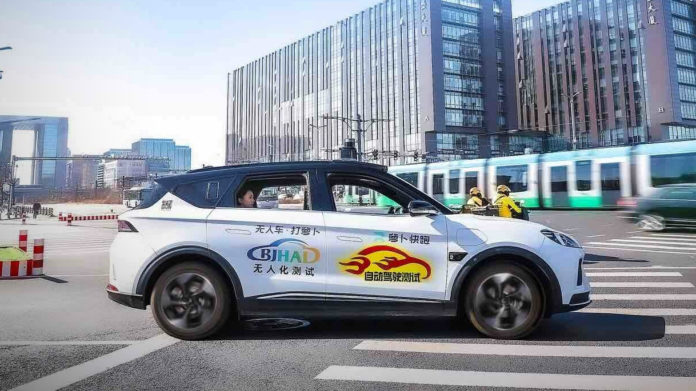Chinese search engine and cloud analytics firm Baidu has won a permit to provide a driverless ride-hailing service in Beijing. It said the new taxi service will be the “first-ever fully driverless fleet” in any capital city in the world. It follows the rollout of similar driverless cab (“robotaxi”) services – “with no human driver or safety operators in the car” – in Wuhan and Chongqing, also provided by Baidu.
A total of 10 driverless vehicles, operated by the firm’s Apollo Go ride-hailing platform, are to be deployed in the Yizhuang economic development zone (SEZ), in the southeast of the city. Yizhuang is an “active centre” for autonomous driving in China, a statement said. Apollo Go is already providing around 20 rides per vehicle per day in the region – “surpassing the average ride volume of traditional online ride-hailing services”, the company said.
The Beijing High-Level Automated Demonstration Area (BJHAD) in the Yizhuang development zone, where autonomous vehicles are currently permitted, is to expand in size from 60 square kilometres to 500 square kilometres, according to plans set out in the city government’s 2023 ‘work report’. The city plans, as well, to open “pathways” for autonomous vehicles to connect to the city’s airport, notably for logistics operations, said Baidu.
Baidu has been developing autonomous driving services for a decade already, and claims 50 million kilometres of test mileage” on Level 4 autonomous driving. It holds over 4,600 patent families for autonomous driving technology, including the “greatest number of high-level autonomous driving patents in the world”, it said. Baidu Apollo is the only Chinese operator ranked on a Guidehouse Insights list of the top autonomous driving vendors in the world.
In the last quarter of 2022, Apollo Go provided 561,000 rides to the public, up 162 percent on the year-ago period. The service had carried two million “rides”, as of the end of January, it claims.

